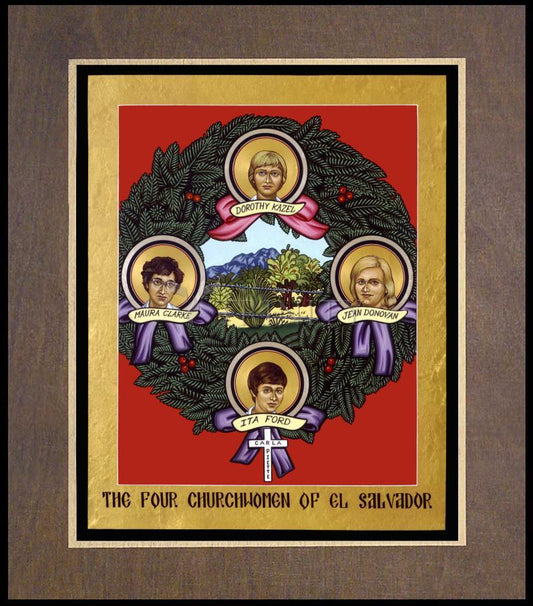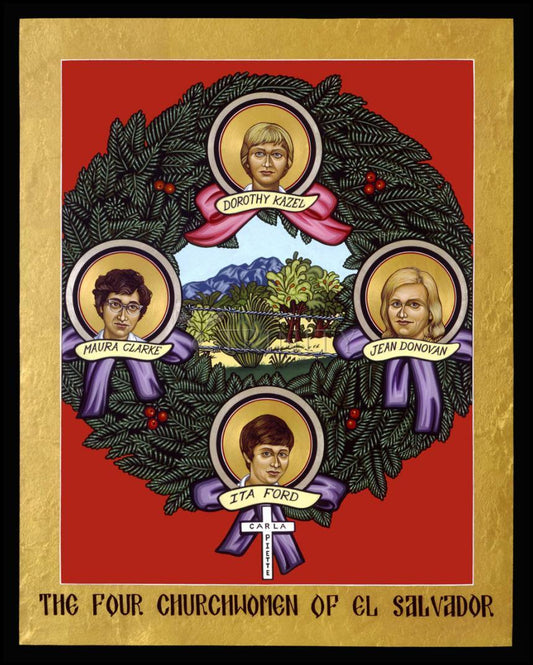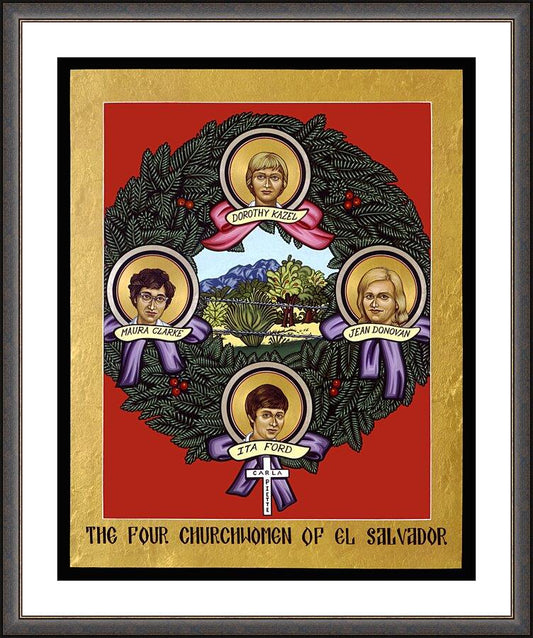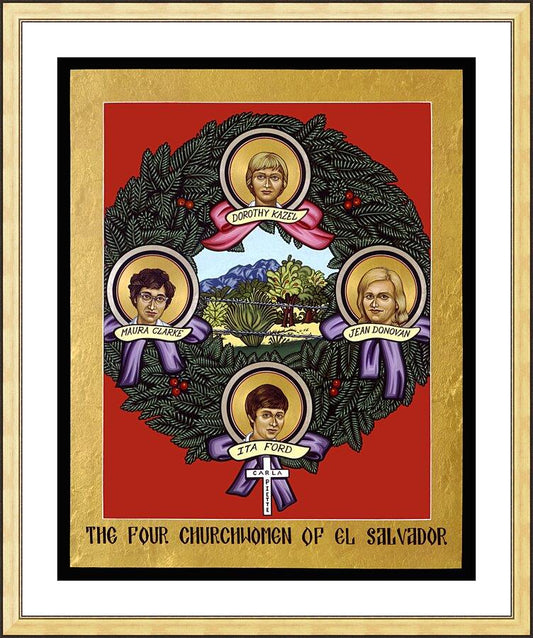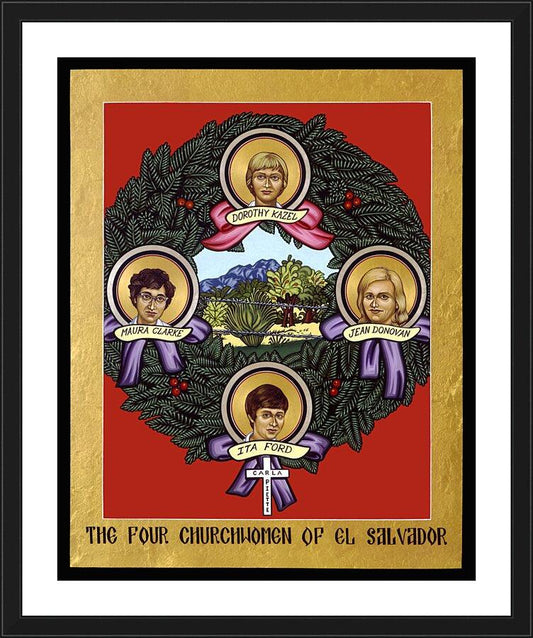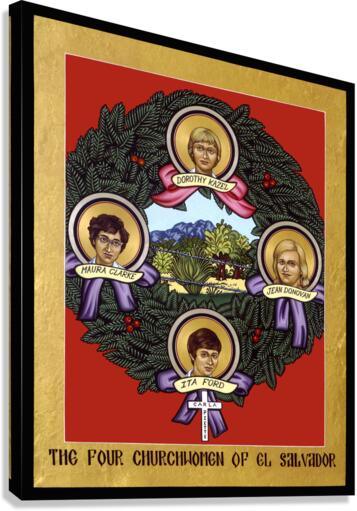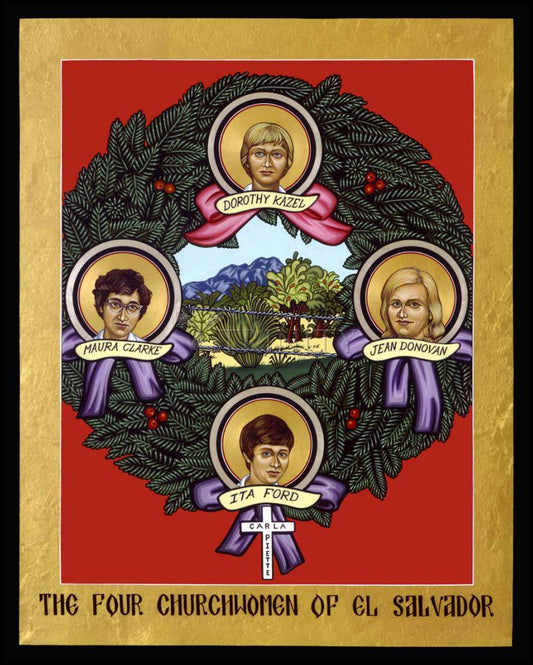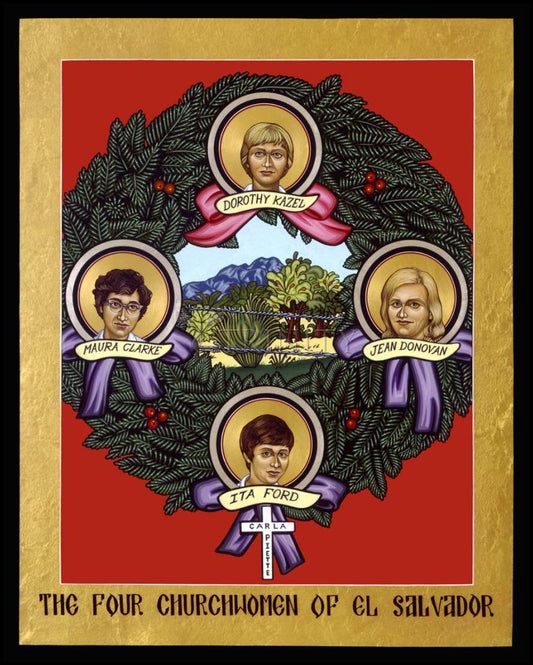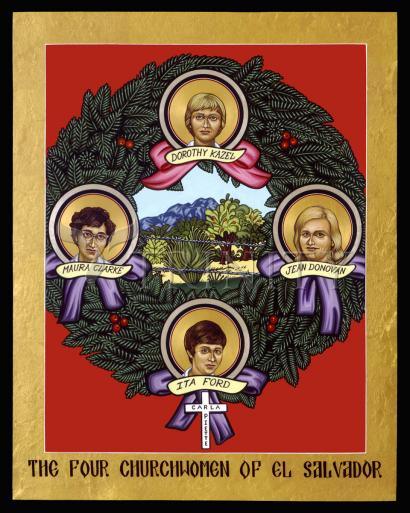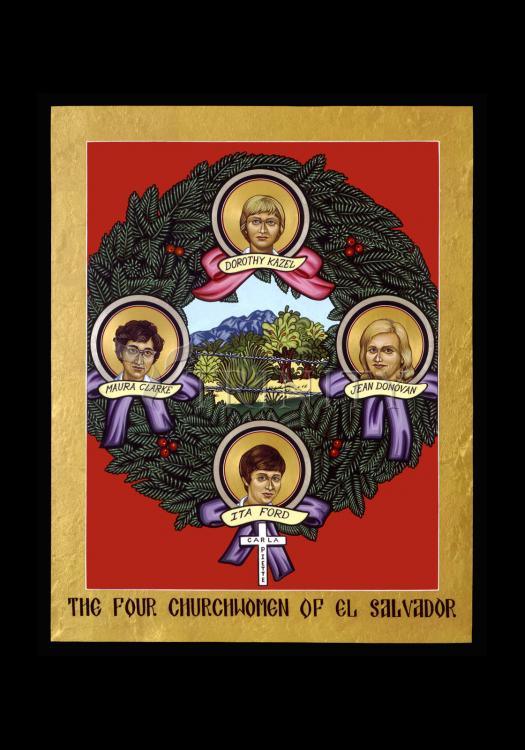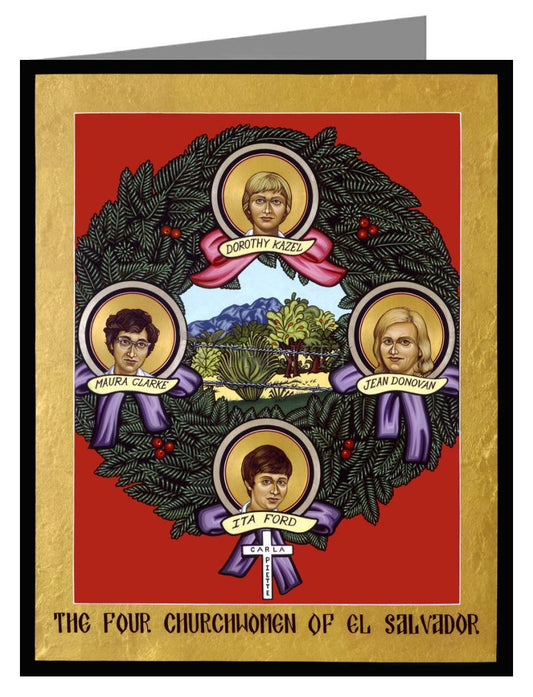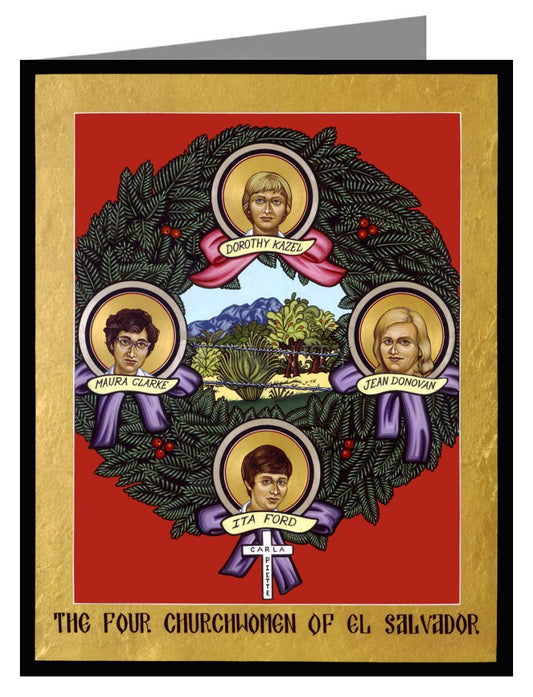Collection: Four Church Women of El Salvador
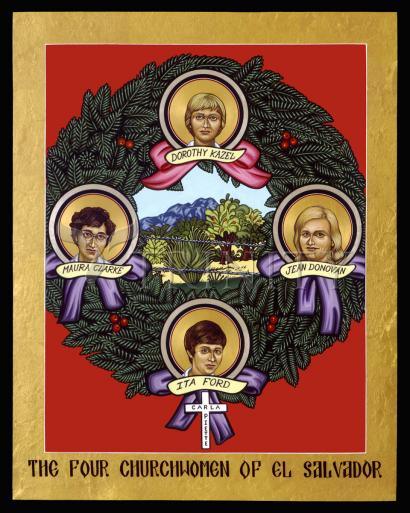
-
Sale
Wood Plaque Premium
Regular price From $99.95 USDRegular priceUnit price per$111.06 USDSale price From $99.95 USDSale -
Sale
Wood Plaque
Regular price From $34.95 USDRegular priceUnit price per$38.83 USDSale price From $34.95 USDSale -
Sale
Wall Frame Espresso
Regular price From $109.95 USDRegular priceUnit price per$122.17 USDSale price From $109.95 USDSale -
Sale
Wall Frame Gold
Regular price From $109.95 USDRegular priceUnit price per$122.17 USDSale price From $109.95 USDSale -
Sale
Wall Frame Black
Regular price From $109.95 USDRegular priceUnit price per$122.17 USDSale price From $109.95 USDSale -
Sale
Canvas Print
Regular price From $84.95 USDRegular priceUnit price per$94.39 USDSale price From $84.95 USDSale -
Sale
Metal Print
Regular price From $94.95 USDRegular priceUnit price per$105.50 USDSale price From $94.95 USDSale -
Sale
Acrylic Print
Regular price From $94.95 USDRegular priceUnit price per$105.50 USDSale price From $94.95 USDSale -
Sale
Giclée Print
Regular price From $19.95 USDRegular priceUnit price per$22.17 USDSale price From $19.95 USDSale -
Custom Text Note Card
Regular price From $300.00 USDRegular priceUnit price per$333.33 USDSale price From $300.00 USDSale
ARTIST: Lewis Williams, OFS
ARTWORK NARRATIVE:
A few days before her death, as part of a retreat liturgical service, Sr. Ita was asked to read a quote from martyred Archbishop Oscar Romero: “…he who is committed to the poor must share the same fate as the poor…to disappear, to be tortured…and to be found dead by the side of the road.”
December 2, 1980, this became the fate of four women; Maryknoll sisters Ita Ford and Maura Clarke, lay missioner Jean Donovan, and Ursuline sister Dorothy Kazel.
These gentle, loving women, living out their commitment to God’s preferential option for the poor, were raped, shot and their bodies left, bruised and naked, by the side of the road. They were American faces amongst 75,000 native Salvadorans, victims of a brutal civil war. In this icon, they stand as reminders of the dignity and beauty of all those innocent victims of greed and oppression.
In this image, the Advent wreath serves to commemorate not only when they died, but also to remind us of this season of hopeful expectancy, yearning for the arrival of Christ’s presence on earth. These women prayed for Christ’s presence amongst so much senseless violence. They learned here, even the Gospel was considered subversive. In the circle of the wreath, the women’s portraits replace the traditional candles: they offer us a glimpse of eternal light. The ribbons represent the color of the candles; three violet ribbons represent sorrow, and one pink, for the third week of Advent, represents the joy we experience with one week till Christ’s birth. I picked Dorothy for this ribbon as she was very joyful, and was the third body unearthed from the temporary grave. The wreath itself is made of evergreen branches, symbolic of life. In the center is a stylized view towards the mountains from the site of their temporary burial, emphasizing the beauty of creation. The barbed wire is evidence of boundaries as land disputes were at the root of so much injustice in Central America. The white cross at the bottom is in memory of Ita’s good friend, Sr. Carla Piette, who drowned two months before Ita’s death, pushing Ita free from their jeep that had been caught in a flash flood. The white cross and black lettering are used by protesters of the School of the Americas at Ft. Benning, Georgia.
- Art Collection:
-
Martyrs & Holy People
- Williams collection:
-
Martyrs and Holy People
The American Churchwomen
On December 2, 1980, members of the National Guard of El Salvador intercepted the van carrying four American churchwomen as they were leaving the international airport in San Salvador. Maryknoll Sisters Ita Ford and Maura Clark, Ursuline Sister Dorothy Kazel, and lay missioner Jean Donovan were taken to an isolated spot where they were shot dead at close range.
Ita Ford and Maura Clark worked in Chalatenango and were returning from a Maryknoll Sisters meeting in Nicaragua. Dorothy Kazel and Jean Donovan had come from La Libertad to pick up their missioner friends at the airport. All were working in the country on behalf of the Archdiocese of San Salvador, helping refugees flee the violence of the erupting war.
The U.N.-sponsored report of the Commission on the Truth for El Salvador concluded that the abductions were planned in advance and the men responsible had carried out the murders on orders from above. It further stated that the head of the National Guard and two officers assigned to investigate the case had concealed the facts to harm the judicial process. The murder of the women, along with attempts by the Salvadoran military and some American officials to cover it up, generated a grass-roots opposition in the U.S., as well as ignited intense debate over the Administration's policy in El Salvador.
In 1984, the defendants were found guilty and sentenced to 30 years in prison. The Truth Commission noted that this was the first time in Salvadoran history that a judge had found a member of the military guilty of assassination. In 1998, three of the soldiers were released for good behavior. Two of the men remain in prison and have petitioned the Salvadoran government for pardons.
The families of the four churchwomen continue to pursue a lawsuit in U.S. federal court against the former Salvadoran generals retired in Florida, who were senior government officials in El Salvador at the time of the killings.
The deaths of these women intensified a movement for social justice in Central America that continues today...
—Excerpts from “Martyrdom in El Salvador" December 2, 2000 Maryknoll Sisters Center
Additional Items Our Customers Like
-
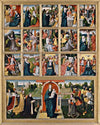
Fifteen Mysteries and Mary of the Rosary (by Museum Religious Art Classics)
-

Flight into Egypt (by Museum Religious Art Classics)
-

Forest Sing For Joy (by Lewis Williams, OFS)
-
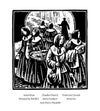
Founders of the Srs. of St. Joseph (by Julie Lonneman)
-
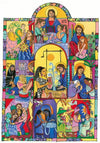
Fountain of Wisdom (by Br. Mickey McGrath, OSFS)
-

Four Evangelists (by Museum Religious Art Classics)

